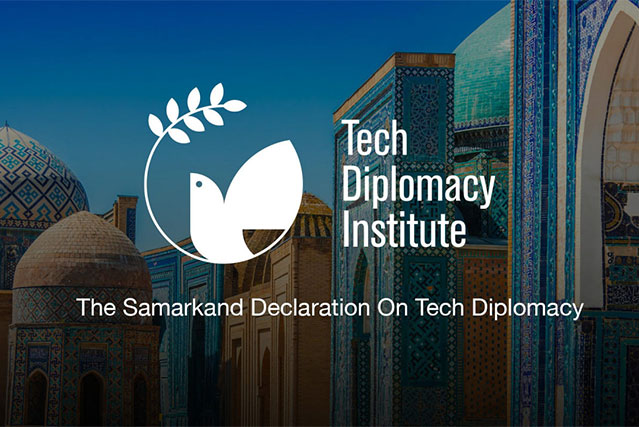
Historic Signing of the World’s First Tech Diplomacy Declaration Takes Place in Samarkand
Historic Signing of the World’s First Tech Diplomacy Declaration Takes Place in Samarkand
Tashkent, Uzbekistan (UzDaily.com) — On 1 November 2025, Samarkand hosted the historic signing of the Samarkand Declaration on Technological Diplomacy, the world’s first international document aimed at expanding the capacity of countries to participate in shaping the global digital future.
The ceremony took place within the framework of the 43rd UNESCO General Conference—the first held outside Paris since 1985—and marked the starting point of an international process that will encompass all regions of the world by 2027, aiming for global unification by 2030.
The declaration was initiated by the Tech Diplomacy Institute (TDI) with support from UNESCO. It brought together representatives from government agencies, businesses, educational institutions, and civil society from Central Asian countries as founders and observers, laying the foundation for a global initiative to democratize technology governance in the digital era. The event highlighted the unique role of Central Asia as a region opening a new chapter in international cooperation, where diplomacy intersects with innovation and developing countries become equal participants in shaping the global digital order.
“At the crossroads of the Great Silk Road, which for centuries connected civilizations, today we are charting a digital path toward our shared future,” said Ayumi Muur Aoki, founder and president of TDI (France).
The document was prepared against the backdrop of more than 170 countries lacking permanent technology ambassadors, with annual global economic losses from uncoordinated digital regulation estimated at $2.8 trillion (Economist Impact, 2025). The Samarkand Declaration establishes an international platform for aligning global standards in artificial intelligence, data protection, cybersecurity, and emerging technologies.
Signatories of the declaration expressed their intent to appoint ambassadors or similar representatives in the field of technology, integrate technological governance into national foreign policies, participate in multilateral initiatives on ethical and inclusive digital development, and promote principles of digital rights and sustainable development.
“Technology transcends national borders, yet diplomacy has not kept pace with its development,” emphasized Dr. Tawfiq Jelassi, UNESCO Deputy Director-General and Chair of the TDI Advisory Board. “The Samarkand Declaration embodies the spirit of international cooperation required by today’s digital world.”
The declaration was signed by UNESCO representatives and delegations from Uzbekistan, Tajikistan, Kazakhstan, and Kyrgyzstan. Key partners in the initiative include IT Park Uzbekistan, High Technology Park of the Kyrgyz Republic, TBC Bank Uzbekistan, as well as government agencies, educational institutions, and technology communities from across Central Asia.
Signatories stressed that tech diplomacy should be built on collective action and tangible results—through joint pilot projects, testing platforms, and knowledge-sharing networks. Strengthening trust among states through concrete achievements and measurable outcomes was recognized as a key condition for progress in areas such as artificial intelligence, cybersecurity, and data protection.